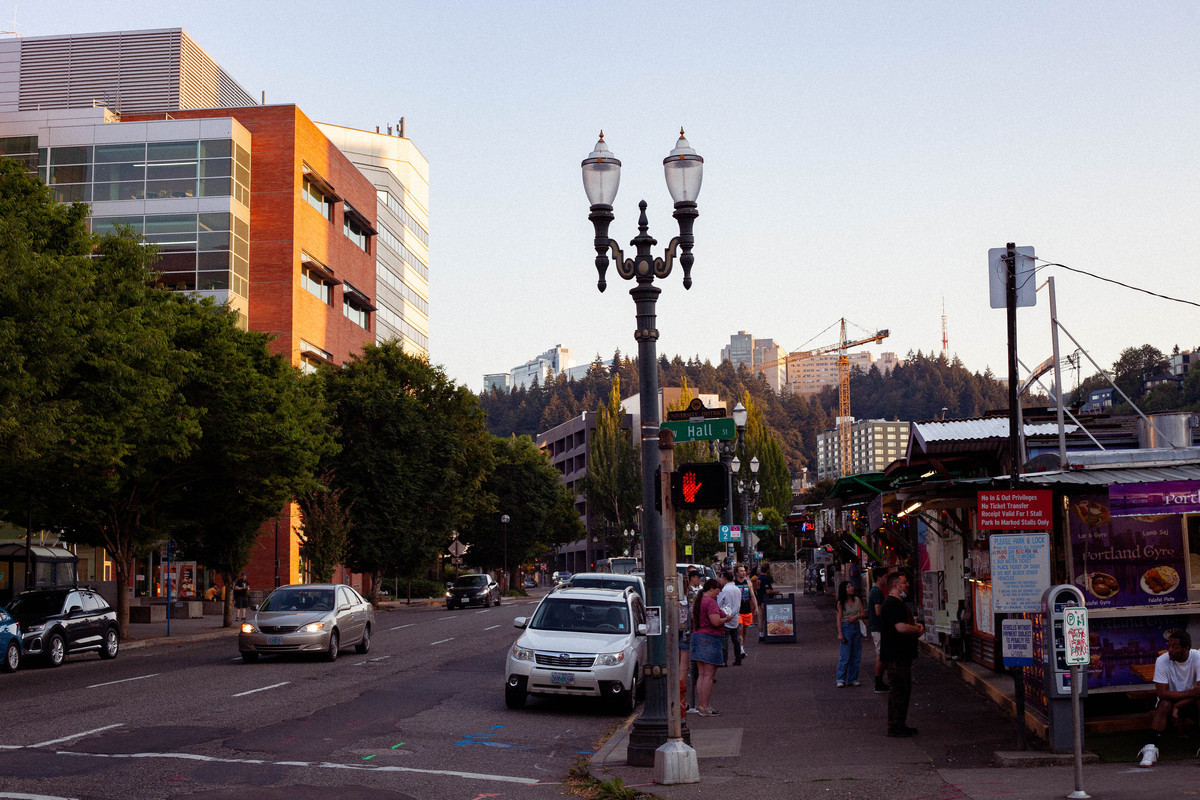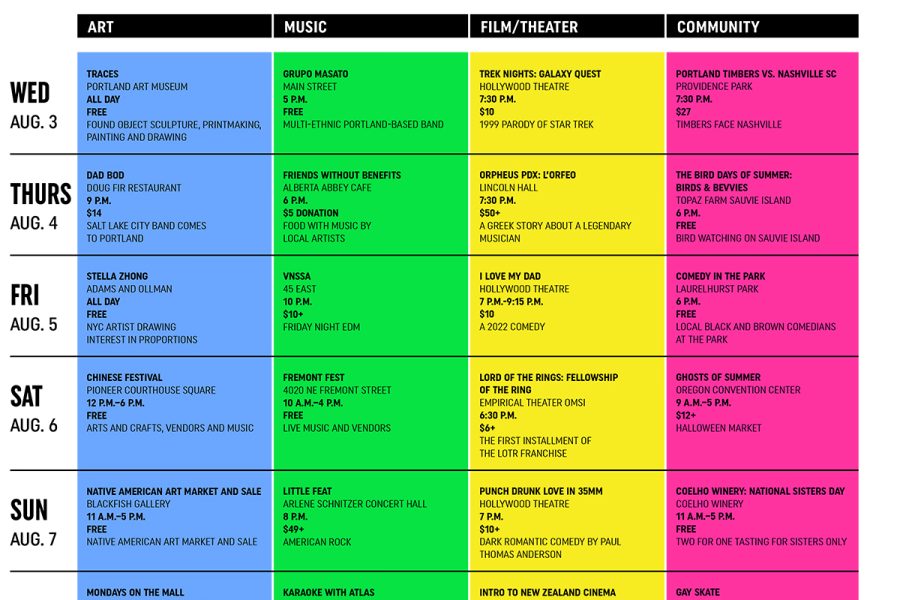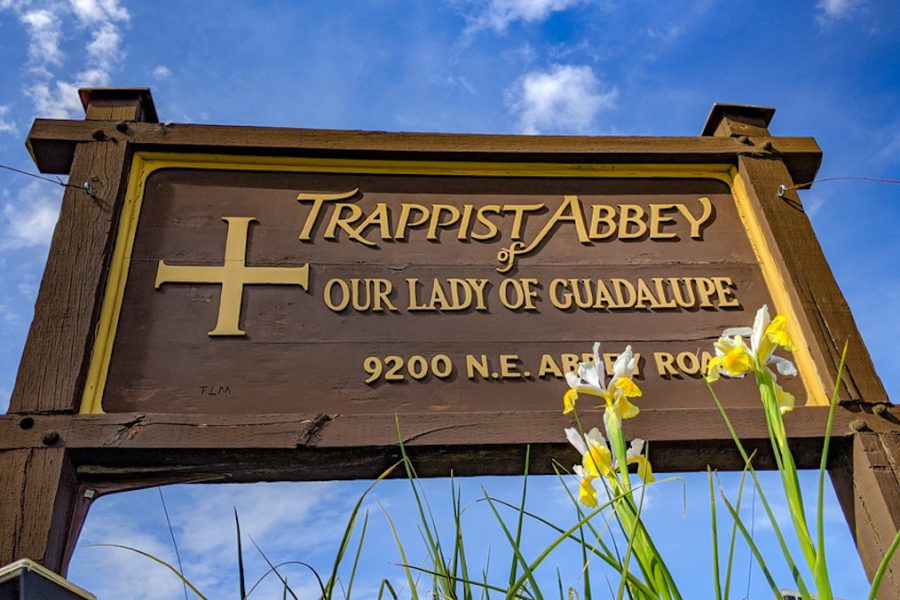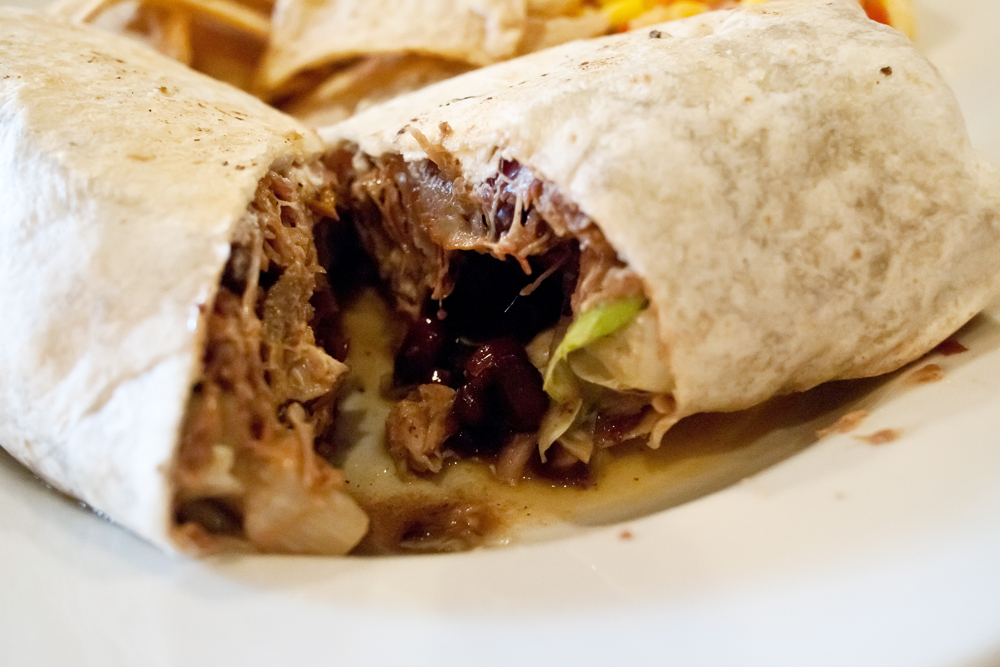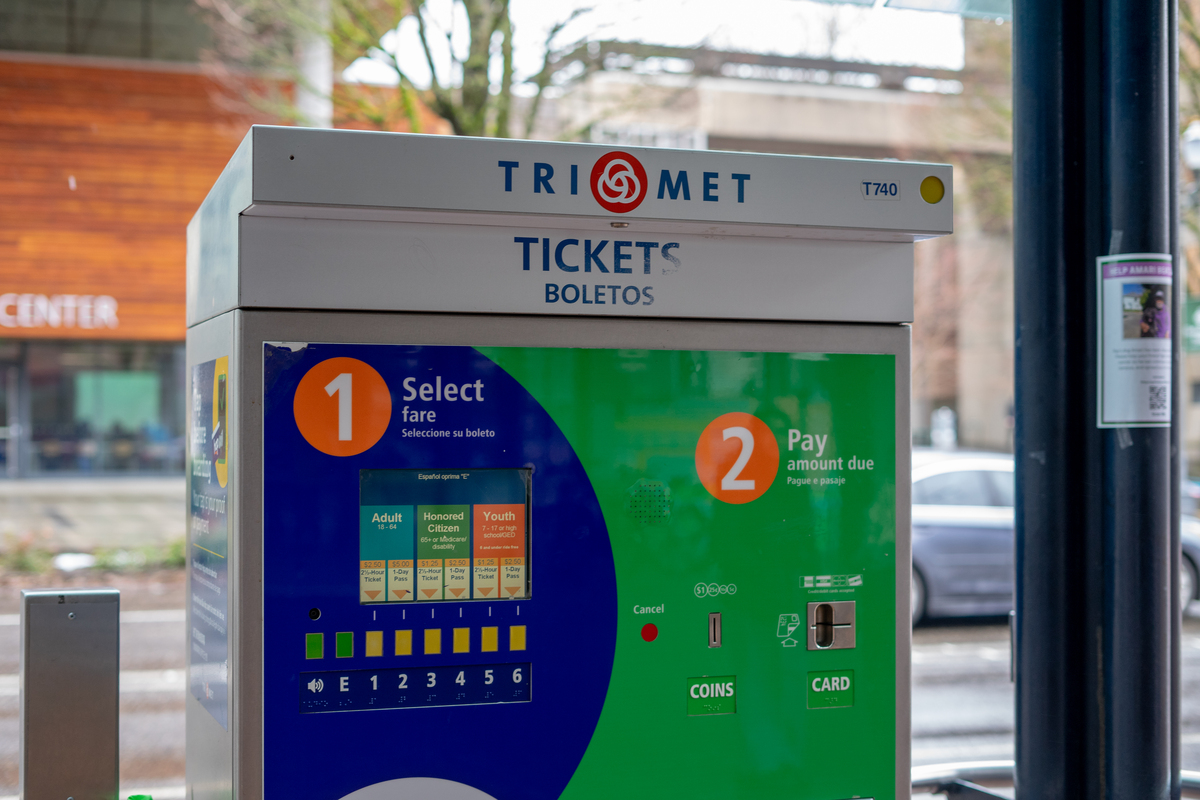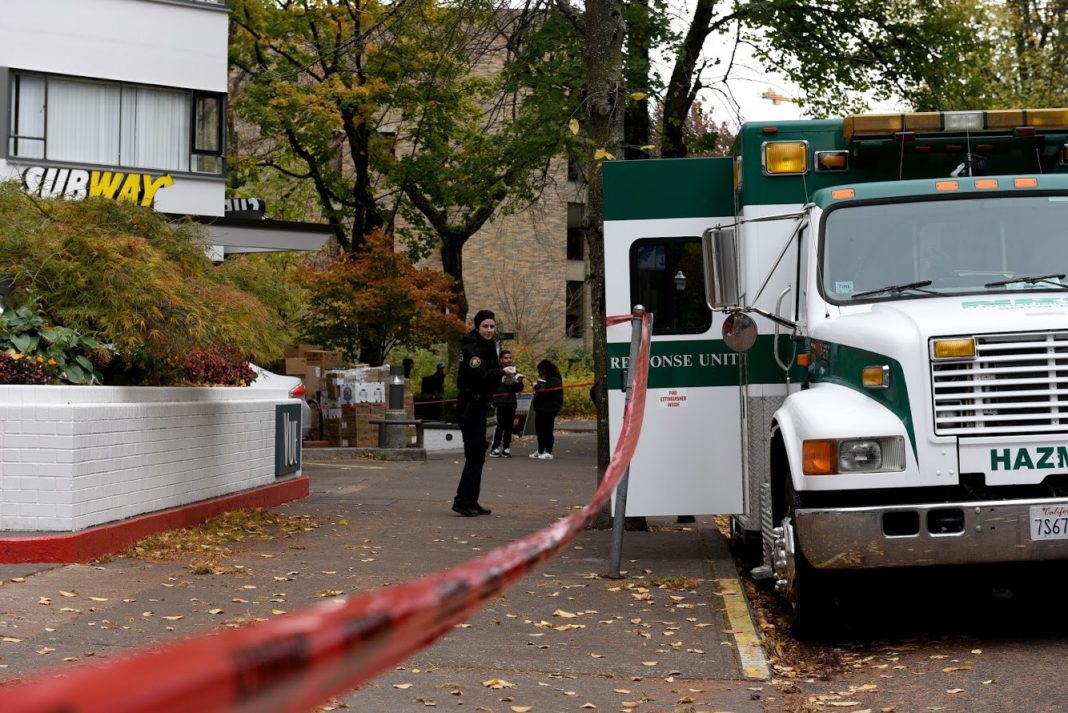For years, food carts have been an integral part of Portland’s dining culture. With over 500 food carts to pick and choose from within the city, this flourishing of flavor is one of the reasons many consider Portland unique. Portland State’s food cart scene is no stranger to this plenty, as it hosts a variety of cuisines to choose from. From Dhaba Indian Kitchen, to PoomPui Thai Food, to Chopollos Mexican Food Cart, the food cart scene offers something for everyone. One can often see students lined up in front of the rows of food carts there, grabbing a quick meal between classes or a late night snack to satisfy their cravings.
However, a new plan by the city of Portland could soon throw this staple of campus culture into jeopardy. A new apartment complex is going to be built where the food carts now stand. It will consist of two tall buildings, one of which will be seven stories tall, with an open courtyard in the middle. While most of the building will be devoted to residential areas, several sections as discussed by the floor plan will be allocated to amenities, including two floors dedicated to parking and one side of the ground floor for micro-retail.
The PSU community has mixed feelings about this new building. Some students feel there are potential benefits to this project. Ian G., a senior at PSU who asked not to be identified by his full name, said, “Medium and high density housing projects are the best way to recycle land inside city limits when faced with a housing crisis. The best way to lower housing and rent prices, in my opinion, is to simply build more units.”
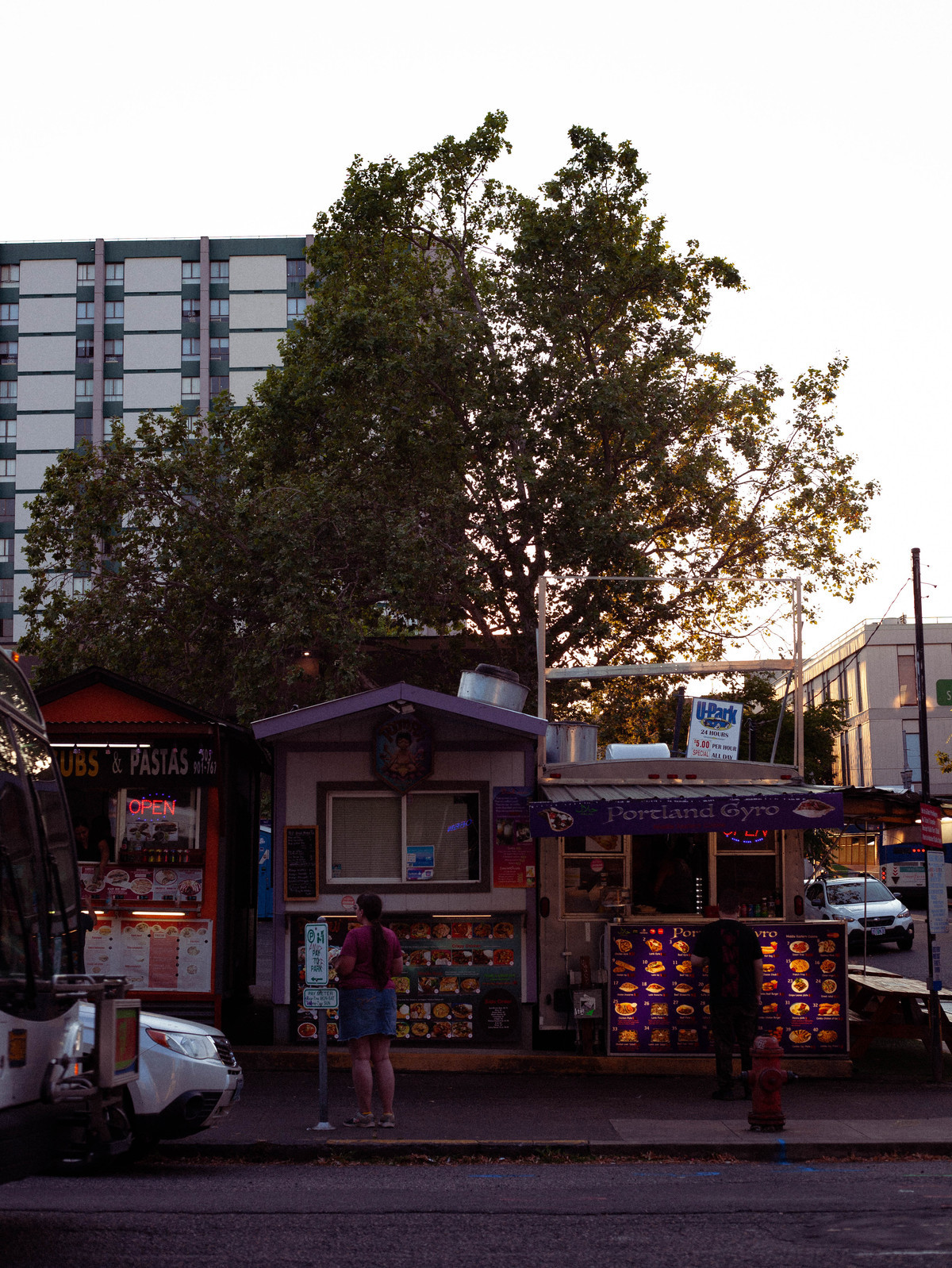
Homelessness is a large issue in Portland and within the PSU community. A study done in 2020 by the Portland State Homelessness Research and Action Collaborative found that 16% of students faced houselessness in the 12 months prior to completing the survey.
Others, however, feel the potential removal of these food carts will negatively impact PSU’s culture. “The food carts bring a supportive, needed uplifting vibe to students and community members who are out and about during the day and also late at night, sometimes until 1 a.m.,” explained a PSU student who asked not to be named. “Removing these carts is going to cause a rift in that community. I was sad to hear that the foodie culture we have might disappear. It’s nice having a small conversation with people outside your work; it makes you feel human.”
The food cart Rosemary, which serves casual halal fast food, is one of many small businesses that may be affected by this new project. Ali Almosawi, who owned and operated Rosemary for six years, was “devastated” upon hearing the news. “Portland is all about supporting small businesses,” Almosawi said. “So for a large corporation to come scoop up the land we are on and to build an apartment, it’s shocking.”
While food carts like Rosemary add to the culture of PSU, they are not a part of the official PSU food cart vendors. Although not necessarily subject to regulations given by PSU, the land they are on is private property and little recourse could be offered when the original landowner turned the place over to developers.
“We’re all here to make food,” Almosawi continued, when asked about their remarks to the community at large. “We make it all day and night for the students and people around here and to support ourselves. Most of us work 10 hours a day and some 16 hours a day, and six days a week. To see it all gone, it’s devastating.”
For food cart vendors like Almosawi, however, all hope is not lost. The new construction plan includes micro-retailers on the ground floor along SW College Street and SW 4th Avenue, which could potentially be used to host the food truck restaurants that the PSU community cherishes.
“I was happy to see the food court ground floor included in the plans,” Ian G. said. “Some of my favorite food ever has come from those 4th Avenue carts and if they get to stick around, I’d be quite happy.”
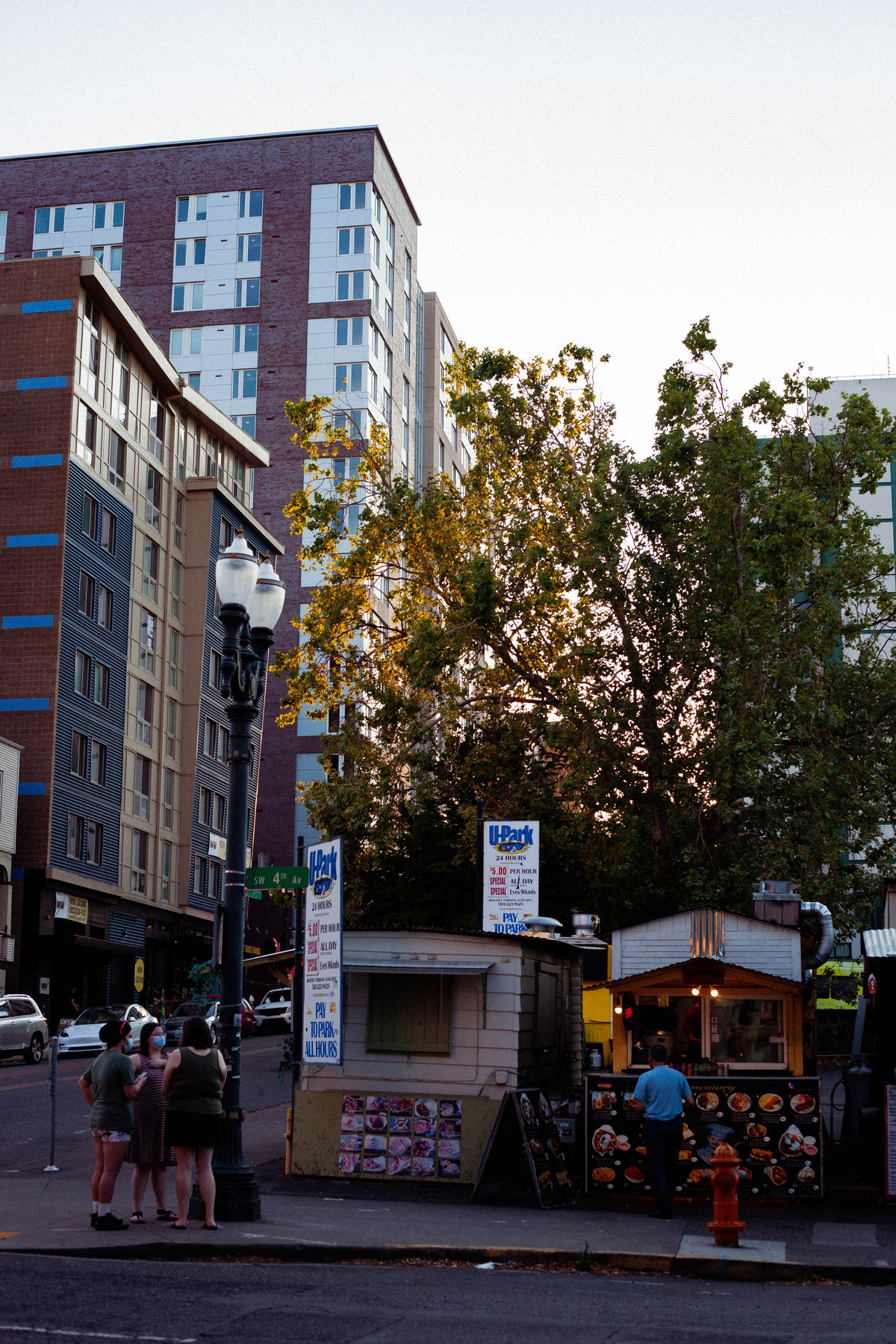
At the public Design Advice Request meeting held on May 19, 2022, commissioners stated, “‘Food cart activity, if not actual food carts themselves… should be maintained along the SW 4th Avenue frontage as a means of ensuring continued street level activity and pedestrian interest.” Commissioners even recommended inclusion of seating areas, benches and canopies along SW 4th and 5th Avenues for weather protection to support the food carts and/or micro-retailers. However, it is important to note that the development company has not yet officially commented on relocating the food carts.
“I heard the food carts might still be there,” the anonymous PSU student said. “But I am still not sure what that looks like. It would be great if they could build around the carts somehow.”
The student noted cautious support for the project if it would improve PSU students’ issues with housing insecurity. “16% of PSU students are homeless,” they said. “If the apartments provide student housing for some of our community (paid through scholarships from PSU funding), in addition to keeping the food carts on the bottom floor, then it would be of benefit for both groups. Perhaps the owners could consult with the ASPSU student government to see what is needed and how it could work out that would be of benefit for both the apartment and the PSU community. We want students to succeed, and having to fight for basic accessible living standards is a huge barrier to success.”
While the future of the 4th Avenue food carts remains to be seen, one thing is certain—regardless of where they end up, everyone in the PSU neighborhood can celebrate the foodie culture that it has now.

